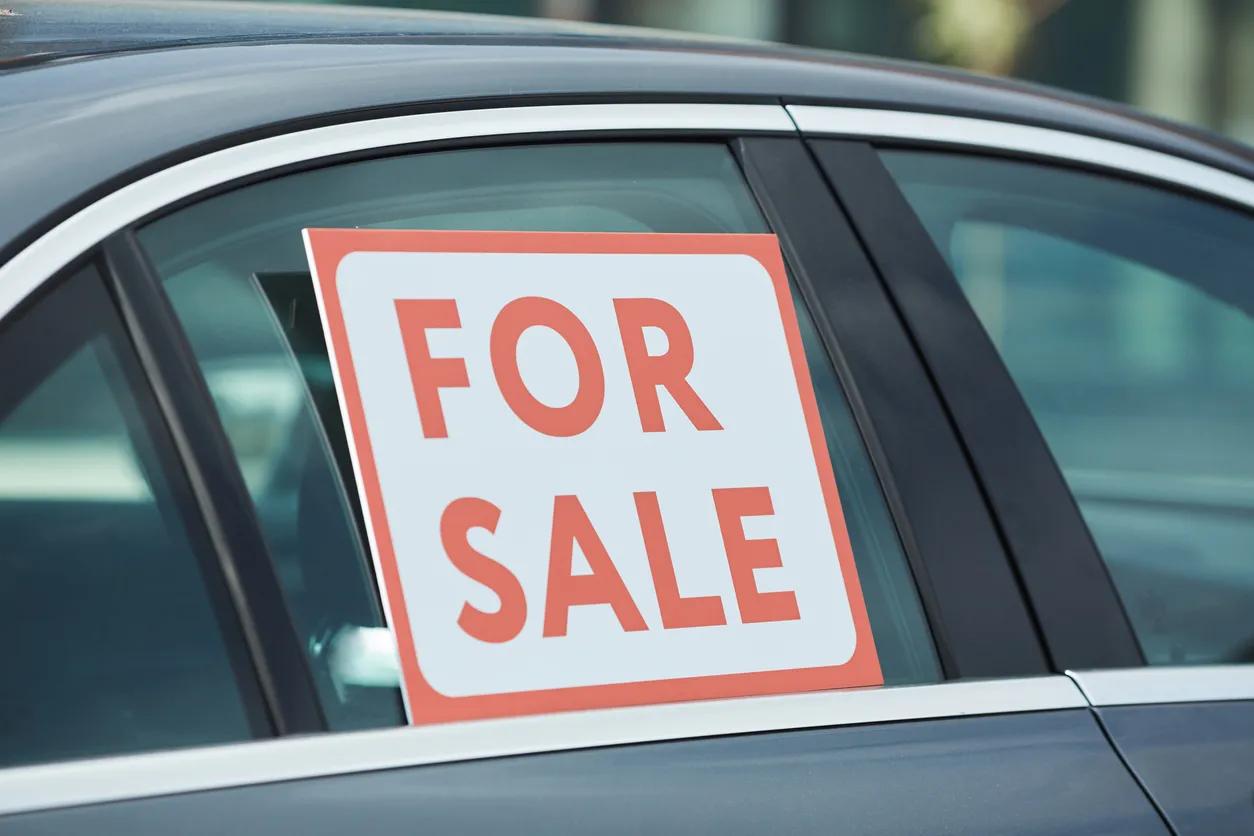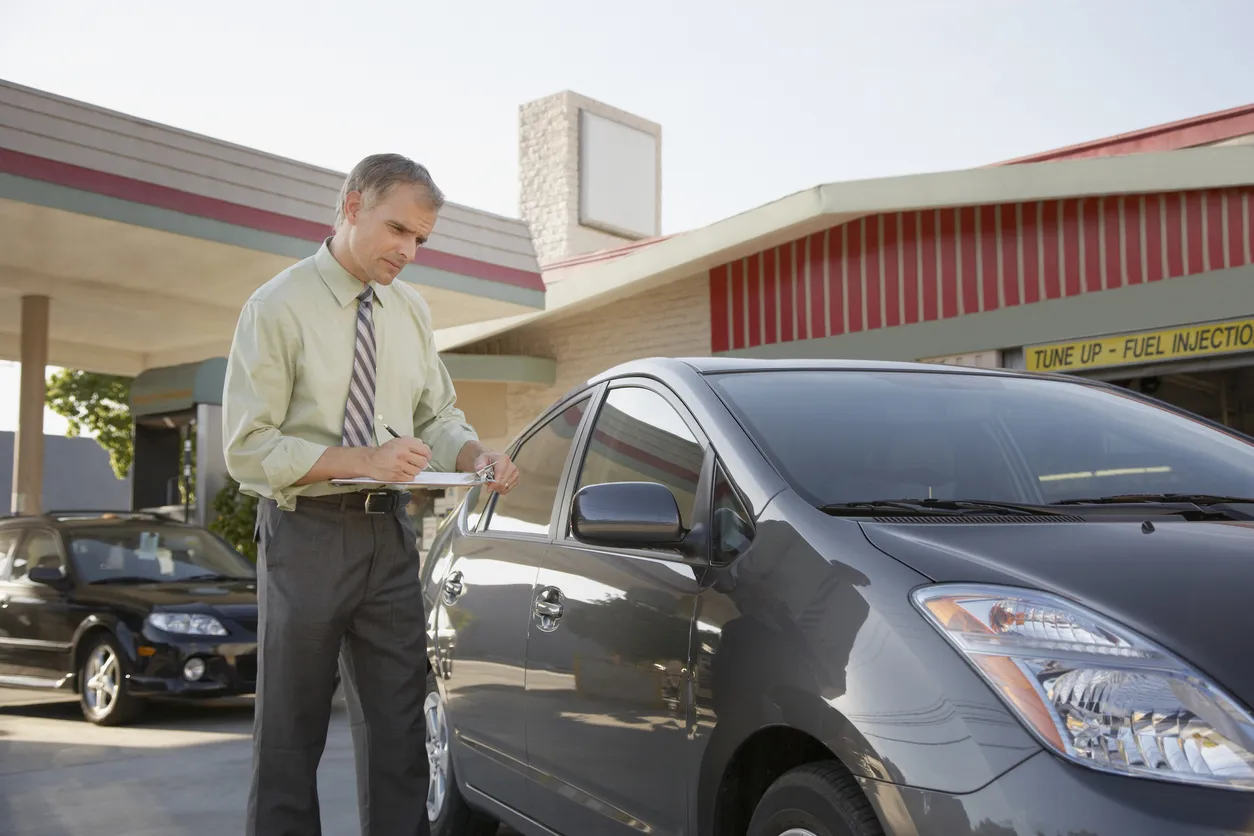How to Sell a Financed Car Without Paying it Off?

Putting your car up for sale can be a difficult process if you still owe money on it, but it doesn't have to be. In this article, we'll show you how to navigate the financing paperwork and sell your car without delays or extra hassles. Find out how to get top dollar for your car in no time!
How to Sell a Car You Owe Money On?
Most people who finance a car purchase pay it off in 4-5 years. The average auto loan is just over $30,000. But no matter what the payoff amount is on your particular vehicle, there are some things you need to know before you begin the process of selling your financed car.
First, get an estimate of what your car is worth. This will give you a better idea of how much you should be asking for the sale. Be sure to factor in the cost of any repairs or maintenance that you may need.
Next, research the value of similar cars to price yours competitively. Finally, check with your bank or lender to find out the exact payoff amount on your loan. They can also provide you with the cost per day so you can factor that into your pricing.

Find The Value of Your Car
When you're selling your car, it's important to get a vehicle history report so you can determine the value of your vehicle. This will help you set a fair price for your car and avoid getting taken advantage of by buyers.
There are a few different ways to determine the value of your vehicle. You can use online resources like GoodCar, or you can get a professional appraisal.
Getting a professional appraisal is the best way to ensure that you get an accurate value for your car that your lending institution will accept. An appraiser will consider the make, model, year, mileage, condition, and other factors to give your vehicle a fair market value.
A professional appraisal will also give you the peace of mind of knowing that you're pricing your car correctly. This can help you avoid haggling with buyers or feeling like you're giving your car away for too little.
If you're selling your financed car, we highly recommend getting a professional appraisal to ensure you get the best possible price.
If You Have Positive Equity
If you're upside down on your car loan, selling your car and repaying the loan may be the best option. But what if you have positive equity? Can you still sell your car?
The answer is yes! You can sell your car even if you have positive equity. Here's how to do it:
- List your car. This is the first and most important step. You can find a buyer by advertising your car online or in classifieds or by working with a dealer or private party broker.
- Determine the sale price of your car. Once you've found a buyer, you'll need to agree on a sale price. Be sure to consider the remaining balance on your loan, as well as any taxes and fees associated with the sale.
- Pay off your loan balance. Once you've agreed on a sale price, you'll need to pay off the remaining balance on your loan. You can do this by sending a check or money order to your lender or by authorizing the lender to deduct the payment from the proceeds of the sale.
- Transfer title and registration. Once the loan is paid off, you'll need to transfer the title and registration to the new owner of the vehicle. In most states, you can do this at your local DMV office. Be sure to bring all the documentation provided to you by your lending institution and the information collected during the sales process.
If You Have Negative Equity
If you have a car worth less than the amount you owe on it, you have negative equity. This can happen if you've put a lot of money into repairs or if you've made payments on time, but the value of the car has depreciated faster than the amount you've paid off.
If you need to sell your car but have negative equity, a few options are available. One option is to take out a personal loan and use the proceeds to repay the car loan. This will allow you to sell the car without worrying about any outstanding debt. Another option is to work with the buyer of your car to arrange financing that will cover the negative equity. You can do this by rolling the amount owed into the new loan or by having the buyer make a down payment that covers the negative equity. If neither of these options is possible, you may need to sell your car that is not payid off for less than what is owed on it and come up with the difference out of pocket to pay off the loan and avoid any further damage to your credit score.
What Happens If the Bank Wants You To Pay Off The Loan Before The Sale
So, you're all set and ready to begin the process of selling your financed car, and you find out that the bank that holds your loan requests that you pay off the loan before the sale. While this can be a bit of a roadblock, there are ways to work around it. You can refinance to pay off more of the car quicker, use your savings to pay it off, or sell your vehicle to a dealership instead of a private seller. Let's take a closer look at each option:
- Refinancing: If you have good credit, you may be able to refinance your car loan and get a lower interest rate. This will help you save money in the long run and may make it easier to pay off the loan before the sale.
- Using your savings: If you have some extra cash saved, you could pay off the loan before the sale. This would allow you to sell the car free and clear and pocket any profits from the sale.
- Selling to a dealership: While unlikely, you may be able to sell your car to a dealership for a higher price than you could get from a private sale. This could give you the extra money to pay off the loan before the sale.
When you're looking to sell your car that isn't paid off, don't assume you won't receive a fair price for your vehicle. At the end of the day, it always boils down to doing what is best for you and your current situation. We hope that the information provided by GoodCar can help you do exactly that!
FREE Vehicle Search
- Accidents
- Problem Checks
- Title Records
- Recalls
- Values
- Specs
-
InfoPay, Inc. (dba GoodCar) is an Approved NMVTIS Data Provider
-
-

















